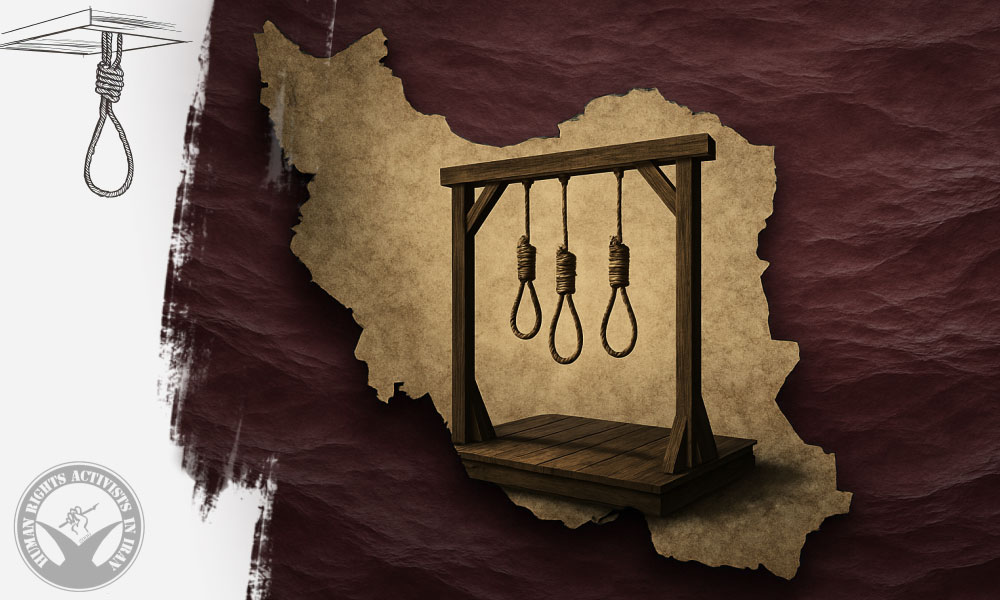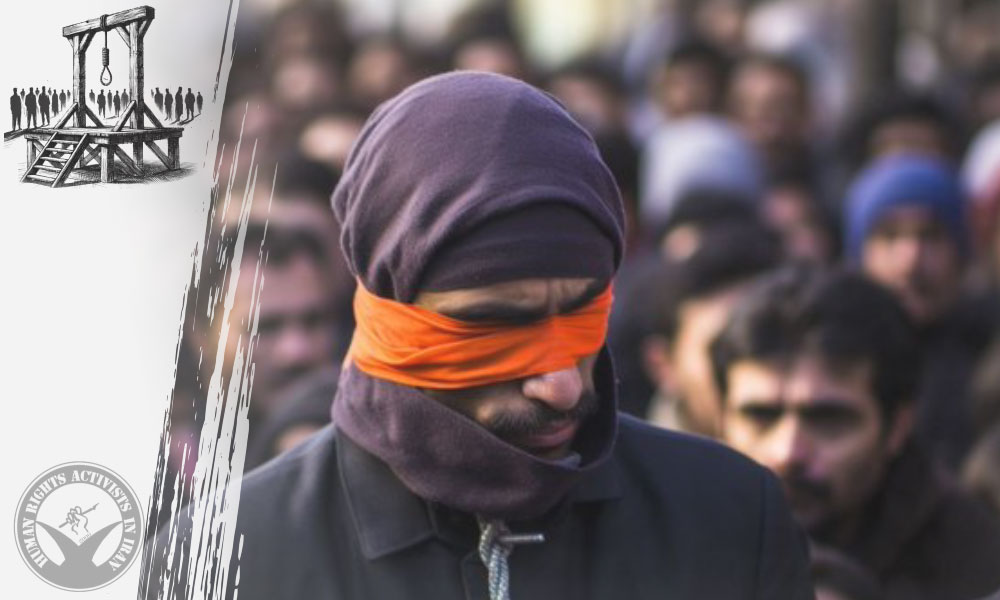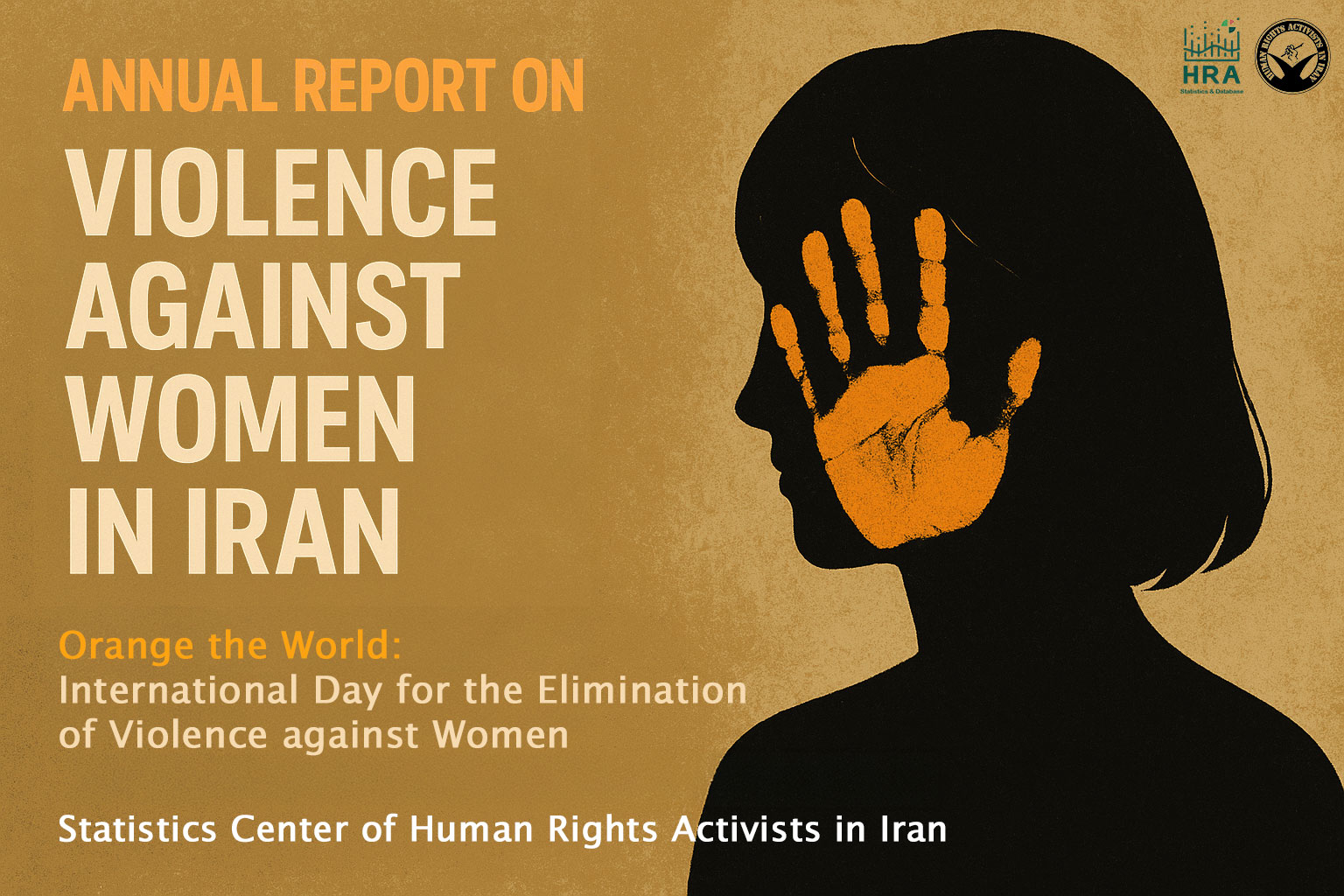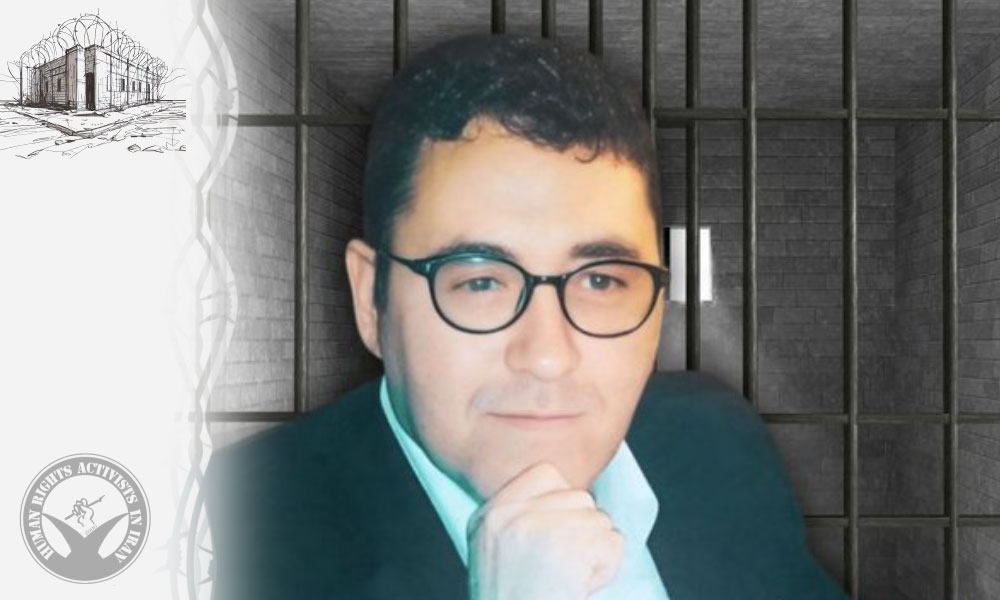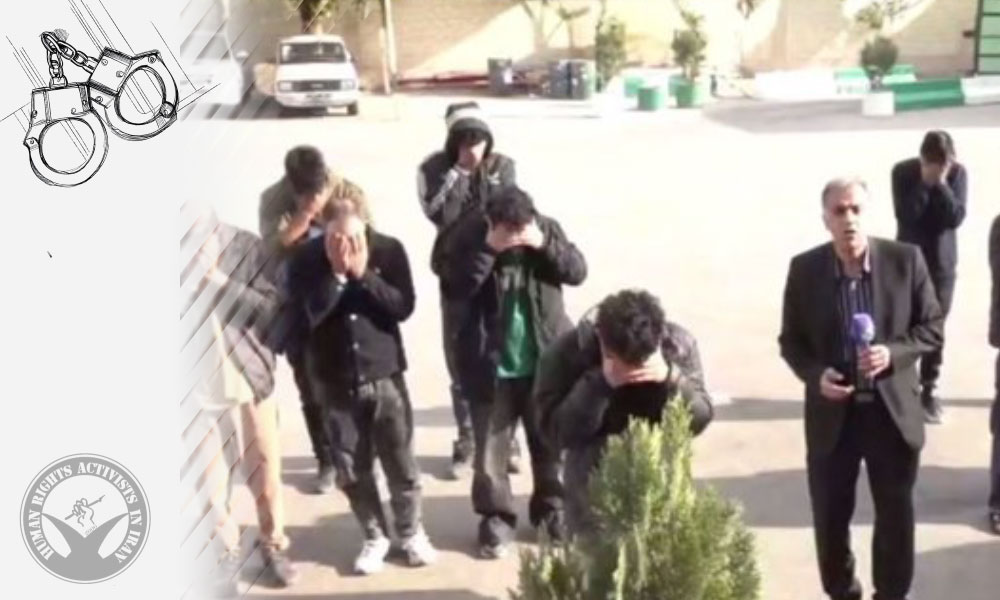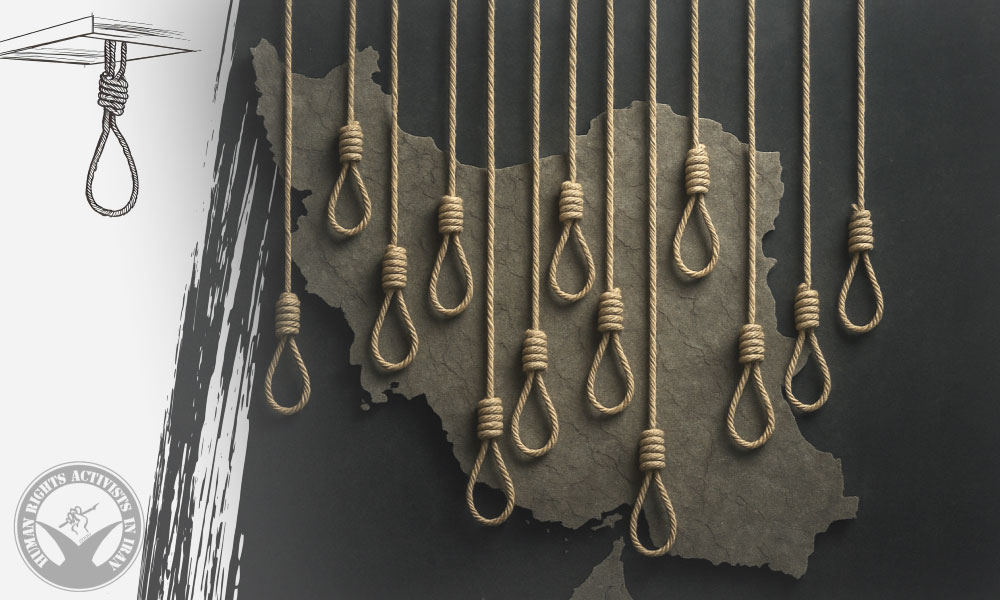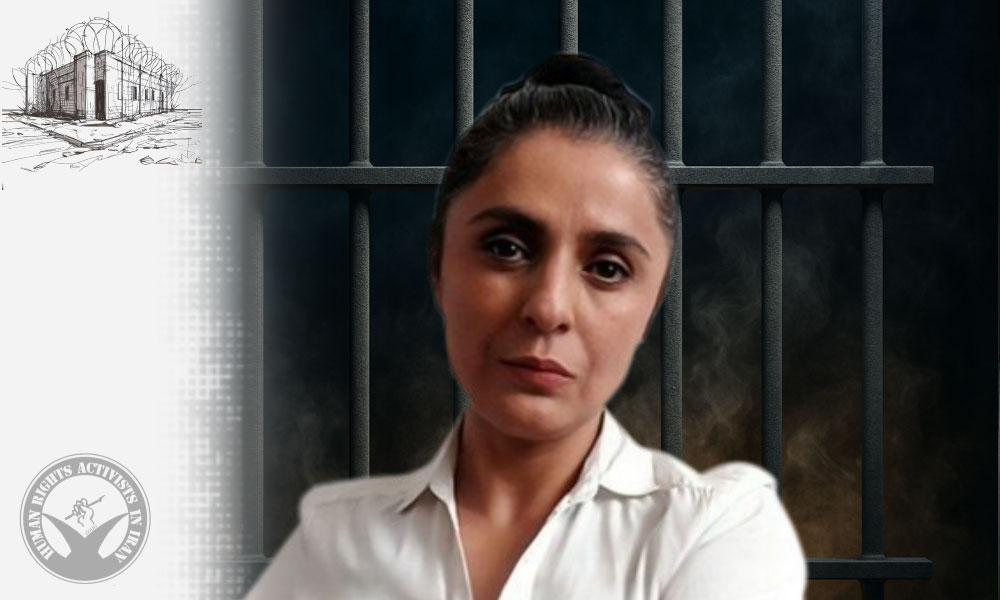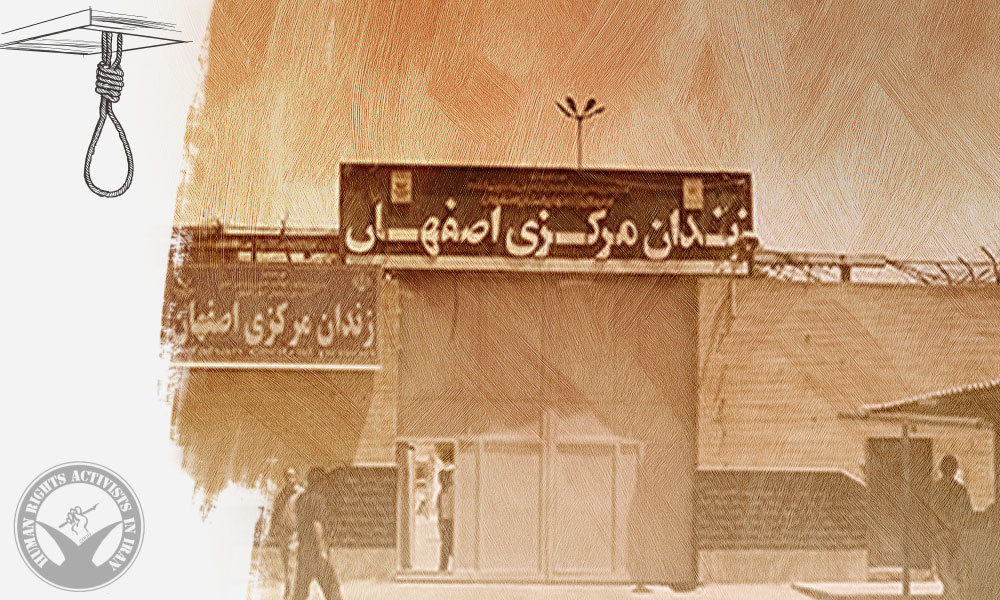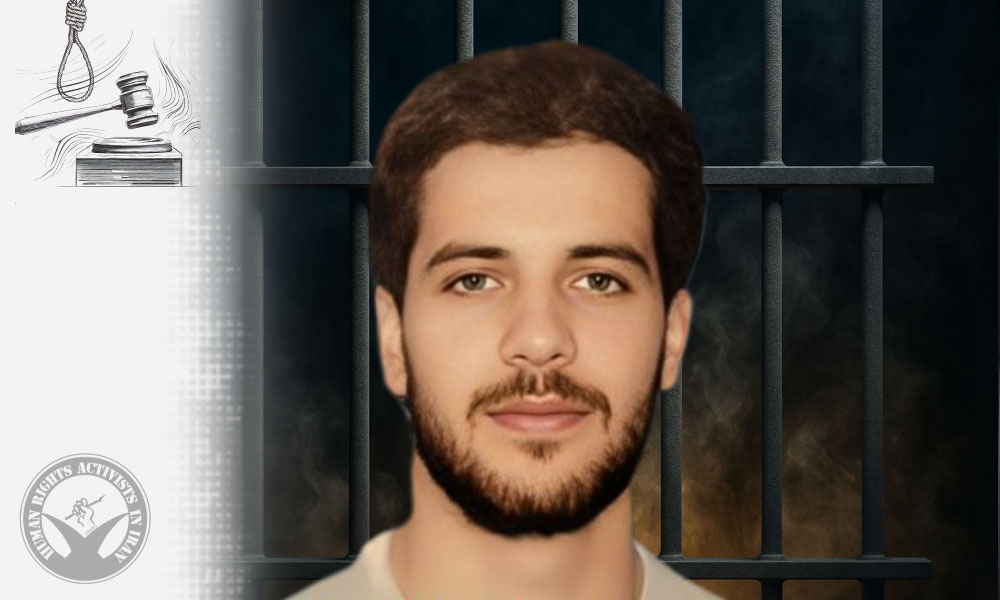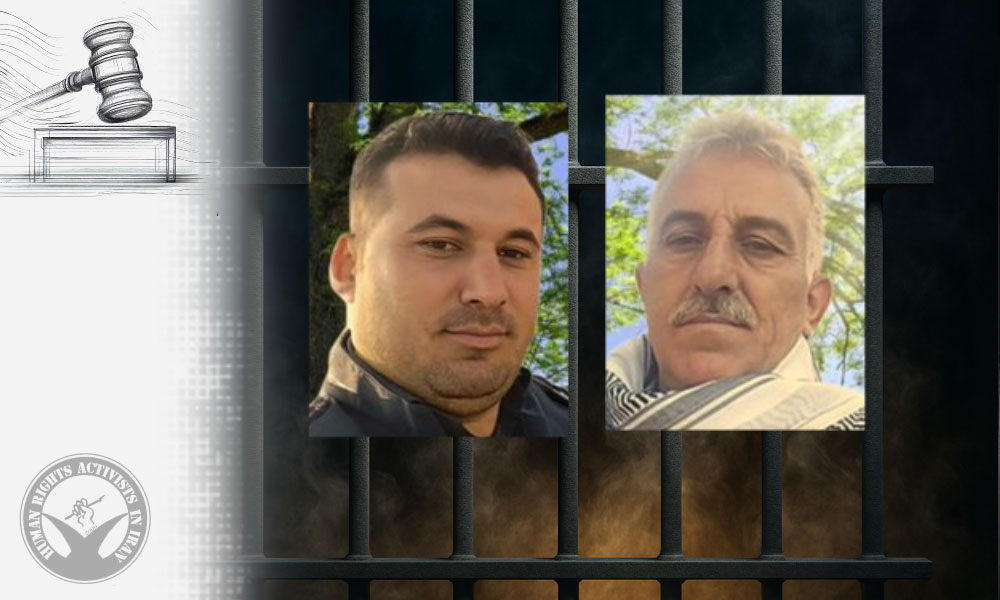HRANA– On the eve of the Orange Week campaign, new one-year data shows that violence against women in Iran is not only a domestic problem but part of a broader, systemic machinery. From murder and sexual assault to judicial rulings and security-agency intervention, patterns of violence appear across the entire country. Women’s bodies, clothing, relationships, and public activism remain central targets of state control. This report summarizes documented cases recorded between November 24, 2024, and November 20, 2025.
Direct and Deadly Violence
Over the past year, more than 110 women and girls were killed in the context of domestic or family-related violence.
The victims included adult women as well as young girls aged 5, 9, 13, 18, and 23.
The main drivers of these killings were family disputes and long-standing tensions. Reported motives included so-called “honor” justifications, retaliation for refusing forced or child marriage, reactions to requests for divorce or separation, as well as suspicion, coercive control, and other forms of domination.
Methods of killing included stabbing, firearms, strangulation, severe beating, and burning.
In dozens of cases, the perpetrator attempted suicide after the murder.
At least 20 multi-victim family murders were recorded, including cases where women were killed alongside their young children or relatives in Golestan, Amol, Borujerd, Mahidasht (Kermanshah), Urmia, Maku, Khorramabad, Mahabad, Lahijan, and Tehran.
At least 25 honor killings were also reported. Victims included girls aged 17–18 and young women; in several cases, the perpetrator was a teenage boy within the family.
During this period, nine acid attacks against women were documented, from Tehran and Karaj to Khomam, Sanandaj, and Golestan.
Some victims lost sight in both eyes.
Additionally, at least six women were killed by their husbands or relatives through intentional burning in Sanandaj, Rezvanshahr, Bandar Abbas, Tehran, Mahabad, and Saqqez.
Sexual Violence and Assault
The documented cases include unprecedented and disturbing incidents, for example, rape inside an ambulance (in one case, the victim died), and the sexual harassment of 12 women seeking jobs in Tehran.
A gang rape in Yasuj led to the victim’s suicide. Serial cases of street harassment in Sanandaj, as well as staged sexual assaults by individuals posing as “employers,” “landlords,” or “ride-share drivers,” also appeared in the reporting.
One of the most shocking cases involved a woman and her young daughter who were imprisoned in a birdcage and assaulted over a period of six years.
Suicide and Self-Immolation Linked to Abuse
At least two women died by suicide following severe domestic violence or relationship breakdowns. One young woman in Mahabad died after self-immolation.
Structural and State-Driven Violence
Violence against women in public spheres also takes the form of security surveillance, judicial pressure, and cultural restrictions.
Arrests, Summonses, and Interrogations
During this period, at least 45 women were arrested, and more than 30 women were summoned to security agencies.
Targets included women’s rights activists, artists, female singers, content creators, women appearing in dance videos, protest participants, and women present in public without the mandatory hijab.
Closure of Businesses and Venues
At least 12 businesses, including cafés, galleries, clinics, and cultural centers, were sealed for alleged violations of “hijab” or “public decency.” One case involved a gynecology clinic in Yazd.
Cultural and Artistic Restrictions
Concerts were canceled due to the presence of female musicians or singers. Women participating in events faced fabricated legal charges, and seven female singers in Behbahan were summoned by authorities.
Security Crackdown on Clothing
Women were arrested over their clothing or for “dancing,” cases were opened against organizers of cultural events, and some women were barred from attending interrogation sessions due to their clothing—highlighting how intensely dress codes have been policed.
Judicial Penalties and Sentences
Over the past year, women collectively received more than 200 months of discretionary imprisonment, 74 to 178 lashes, bans on activity and travel, electronic ankle bracelets, and forced residence orders.
Examples include:
• Hamideh Zeraei sentenced to 18 months in prison and 178 lashes
• Hasti Amiri sentenced to 3 years in prison with supplementary penalties
• Maryam Karimi given prison with an electronic monitoring bracelet
• Nina Golestani and Rozita Rajai each sentenced to one year in prison
• Fariba Hosseini and Elham Salehi receiving combined prison terms and activity bans
These rulings show that protesting women and civil activists face structured judicial violence.
Geography of Violence
Violence against women was recorded in most provinces, with the highest-risk areas including Tehran, Khorasan Razavi, Alborz, Kurdistan, Fars, West Azerbaijan, Ilam, and Kermanshah.
In these provinces, reports included a combination of family murders, acid attacks, sexual violence, and security-driven crackdowns.
Trends Over the Year
Analysis of the past year’s data shows distinct periods of intensified violence:
• Winter and spring saw peaks in domestic and honor killings.
• May was the deadliest month with 19 murders.
• Summer brought increased security crackdowns, summonses, and business closures.
• In the days leading up to March 8 (International Women’s Day), a wave of arrests and summonses targeted women’s rights activists.
• Multi-victim family murders, killing a wife along with children or relatives, rose sharply in the final months of the year.
• Sexual assaults using deceptive methods, job offers, rental arrangements, or promises of housing, also increased, alongside incidents in formal settings like emergency rooms and ambulances.
Meanwhile, state power structures continued to fuel violence through closures of venues, legal cases, arrests of women artists, and harsh sentences over dress or online content.
Violence as a Crime Against Humanity
The violence documented in this report cannot be understood without acknowledging the broader context of gender-based persecution as a crime against humanity. In 2023, after nine months of investigation, Human Rights Activists in Iran concluded that women and girls in Iran are deliberately and severely denied their fundamental rights because of their gender. These findings were later used as supporting evidence in UN determinations that gender-based persecution is occurring in Iran.
The cases presented here, from murder and sexual violence to punitive court rulings and systematic harassment, reflect patterns that are neither isolated nor accidental. They are part of a wider policy that, both in law and in practice, treats women and girls as lesser.
Recognizing this reality is essential, because the scale and persistence of these violations demand a response grounded in international law, justice, and accountability.



